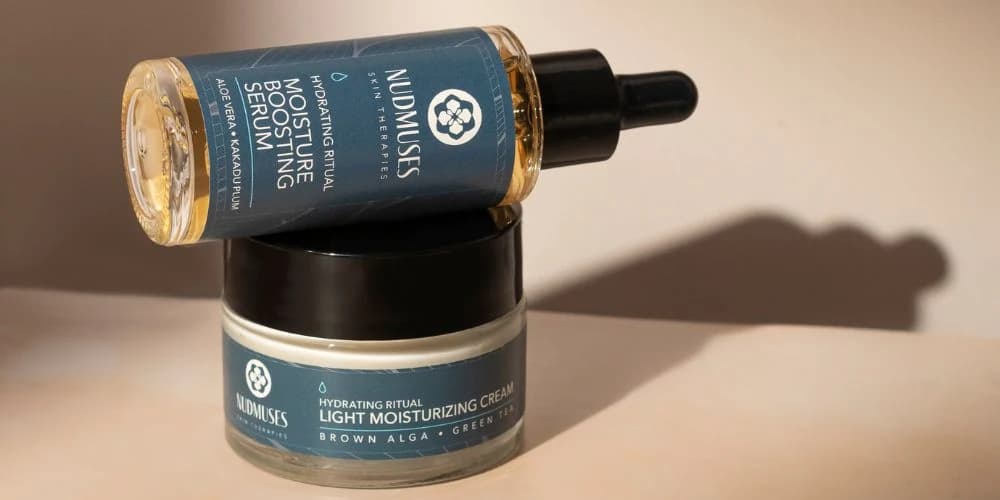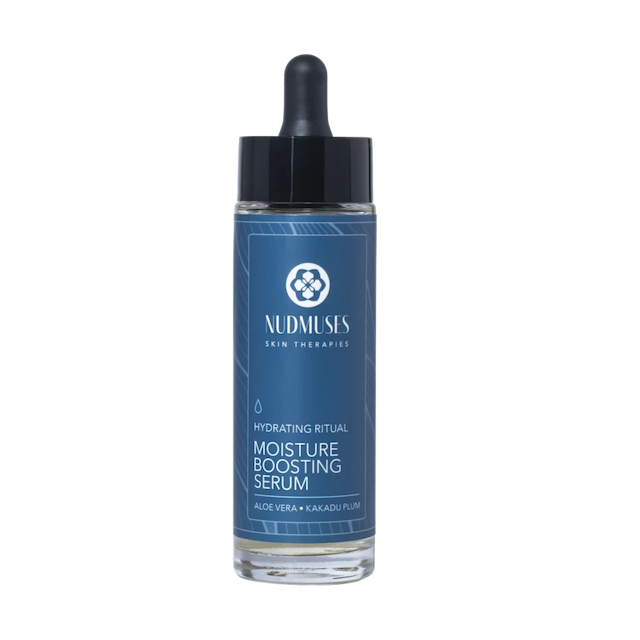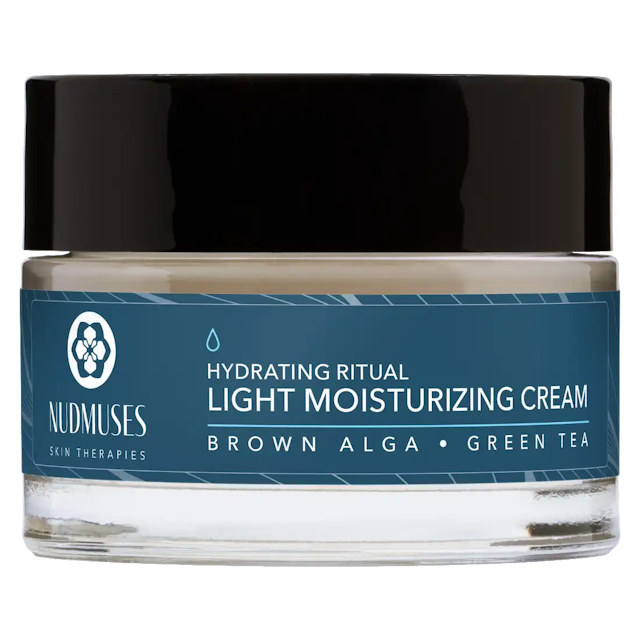
Oily Skin – Characteristics, causes, and effective care.
List of content:
Do you struggle with shiny skin, enlarged pores, or frequently appearing imperfections and blackheads? If so, your skin type is likely oily. Oily skin is a challenge that many people around the world grapple with. Though it can sometimes be troublesome, proper care and understanding the specifics of this skin type can yield excellent results. In this article, we will take a closer look at the characteristics of oily skin, uncover the main causes of its occurrence, and provide tips on how to effectively care for this skin type. You'll learn which ingredients should be part of your daily skin care regimen.
Oily Skin - Characteristics
When we talk about oily skin, we're referring to skin that produces an excess of sebum - a natural oil secreted by the sebaceous glands, which is necessary for keeping skin moisturized and healthy. The problem arises when sebum is produced in excess.
Get to know the characteristic features of oily skin:
- Shiny skin surface: Excess sebum makes the skin look shiny and greasy, especially in the T-zone (forehead, nose, and chin), which has the most sebaceous glands.
- Enlarged pores: Pores on oily skin are often enlarged. This is due to the excess production of sebum, which can accumulate in them, making them appear larger.
- Prone to breakouts, blackheads, and acne: With an overproduction of sebum, there may be an accumulation of harmful bacteria in the pores, which can lead to inflammation and the formation of pimples or blackheads.
- Thick and oily texture: Oily skin often feels thick and heavy, with visible pores and a shiny surface.
Understanding these features is the first step to effectively identifying and then caring for oily skin. However, remember that although oily skin has its challenges, it also has benefits. For example, oily skin is less prone to the formation of wrinkles and fine lines. Proper care for oily skin is not about eliminating sebum and drying out and matting the skin, but about regulating the work of the sebaceous glands and proper cleansing, so that the skin is healthy and balanced.
Oily Skin - Causes
Oily skin can be the result of many different factors. Although its causes can vary, it's most often associated with certain fundamental elements that affect the functioning of our skin. Let's consider the most important ones.
- Hormonal factors: Hormones, especially androgens, play a key role in regulating sebum production. Hormonal changes, such as those occurring during the menstrual cycle, pregnancy, or menopause, can lead to increased sebum production. Scientific studies confirm the correlation between androgen levels and sebum production.
- Genetics: If your parents had oily skin, it's likely that you will inherit it too. Studies show that a predisposition to oily skin can be genetically inherited.
- Diet: Some studies suggest that a diet high in fats and sugars may increase sebum production. In particular, a diet with a high glycemic index is often linked to skin problems, such as acne.
- Stress: Stress can affect our skin in many ways, including sebum production. Research shows that stress can increase sebum production, leading to oily skin.
- Improper care: We often think that effectively combating oily skin involves frequent and intense face washing, drying, and matting. However, overly aggressive care can lead to even greater sebum production as the skin tries to compensate for the excessive removal of lipids from its surface.
Oily Skin Care
Understanding how to care for oily skin is essential to maintain healthy and balanced skin. Caring for oily skin requires exceptional attention, but with the right practices and products, significant improvement and visible results can be achieved.
Cleansing
The first step in caring for oily skin is thorough, but at the same time, gentle cleansing. It should be done in the morning and evening to remove excess sebum, pollutants, and makeup. Look for cleansing products that contain ingredients to help reduce sebum production, like salicylic acid.
Toning
After cleansing the skin, it's good to use a toner. Toner helps balance the pH of the skin, remove any makeup or pollutant residues, and prepare the skin for better absorption of subsequently applied products.
Applying Serum
Serums containing ingredients such as salicylic acid, hyaluronic acid or niacinamide can help regulate sebum production, combat inflammatory conditions, and moisturize the skin. In this skincare step, opt for oil-free formulas like the Moisture Boosting Serum. This cosmetic product includes ingredients like aloe and witch hazel extract, which have anti-inflammatory, toning, and antibacterial properties. These properties are essential in oily skin care.
Moisturizing
Contrary to popular belief, oily skin still needs moisturizing. It helps maintain skin balance and prevents overproduction of sebum, which is often a reaction to excessive drying. Choose products with a light texture that absorb quickly. A good choice would be Nudmuses' lightweight moisturizer, which contains niacinamide, green tea extract, and lightweight emollients and natural oils like hemp oil. Thanks to this combination of ingredients, this cream makes the skin silky smooth and radiant after use.
Sun Protection
Daily use of sunscreen is necessary for every skin type, including oily skin. Don't skip this step!
Regular Exfoliation
WPerforming regular exfoliation can help unblock pores and reduce the formation of blackheads. But be careful, don't overdo it - exfoliating 1-2 times a week is a sufficient amount to not damage the hydrolipid barrier. Damage to it can paradoxically lead to even greater sebum production. You can read more about the hydrolipid barrier in this blog post: The hydrolipid barrier of the skin - what is it, and how to rebuild it?
Common Mistakes in Oily Skin Care
People with oily skin often make certain mistakes that can worsen the condition of their skin. First and foremost, overly aggressive skin cleansing to remove sebum. Overexposure to strong cleansing agents can lead to excessive drying of the skin, which in turn may prompt the sebaceous glands to produce even more sebum. Another mistake is the belief that oily skin does not need moisturizing. Even oily skin needs hydration to maintain balance. Maintaining proper hydration can even cause our sebaceous glands to produce less sebum. Another mistake is ignoring sun protection. UV rays can cause skin damage and intensify skin problems.
Ingredients for Oily Skin Care
Choosing the right products for oily skin care is key. There are several ingredients that can help minimize issues related to excessive sebum production. These include:
Salicylic Acid: This is a type of beta-hydroxy acid that can penetrate the skin's pores and effectively remove excess sebum and impurities. Salicylic acid also acts as an exfoliant, accelerating skin cell renewal and reducing the risk of pore clogging. Studies confirm the effectiveness of salicylic acid in treating acne, which often accompanies oily skin.
Niacinamide: This is a form of vitamin B3 that can offer many benefits to the skin. Niacinamide helps regulate sebaceous glands, which can help reduce sebum production, and also has anti-inflammatory and antioxidant effects. It may also increase the production of ceramides, which helps maintain a healthy skin barrier. Research shows that niacinamide can be particularly effective in reducing sebum production and improving the overall condition of oily skin.
In addition to these ingredients, skin care products may contain many other beneficial ingredients for oily skin, such as hyaluronic acid for hydration or zinc compounds with anti-inflammatory effects. Choosing products with the right ingredients can help control sebum production, reduce breakouts, and improve the overall condition of oily skin.
Oily skin care can be challenging, but with the right approach and use of appropriate ingredients, satisfying results can be achieved. It's important to remember to regularly cleanse, tone, moisturize the skin, and protect from UV radiation. Ingredients such as salicylic acid and niacinamide can bring significant improvement.
Remember, everyone's skin is different. What works for one person may not work for another. It's always worth consulting a dermatologist or cosmetologist about the choice of cosmetics and skin care. In addition, a healthy diet and lifestyle have a huge impact on our skin condition. Regular exercise, proper hydration, and a balanced diet can help keep it in peak health.

